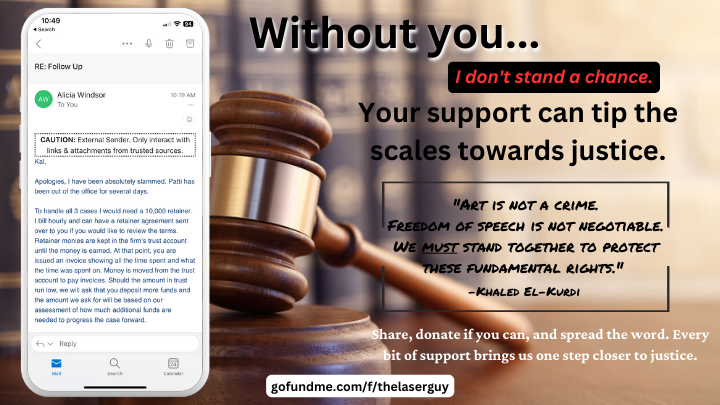Legal Challenges Artists Face

Artists face various legal challenges in their creative endeavors, stemming from the need to protect their rights, navigate complex copyright issues, and contend with censorship and freedom of expression concerns. This article provides a broader look at some of the common legal challenges that artists often encounter, offering context to their legal situation and highlighting the importance of understanding and addressing these challenges within the artistic community.
Copyright and Intellectual Property
One of the primary legal challenges for artists is safeguarding their creative works and asserting their ownership rights. Copyright laws are in place to protect artists' intellectual property and grant them exclusive rights to reproduce, distribute, and display their works. However, navigating the intricacies of copyright can be complex, particularly in the digital age where the ease of sharing and reproducing creative content presents new challenges.
Artists may face the unfortunate reality of copyright infringement and plagiarism, where others use their work without permission or claim it as their own. This can lead to financial loss, reputational damage, and the dilution of artistic integrity. Artists must be proactive in monitoring and addressing instances of infringement to protect their rights and ensure the fair use of their creations.
Censorship and Freedom of Expression
Artists often push boundaries and challenge societal norms through their work. However, this can lead to conflicts with censorship laws and restrictions on freedom of expression. Artistic expression that tackles sensitive or controversial topics may face scrutiny, limitations, or even censorship in certain jurisdictions. Artists must navigate these challenges while seeking to express their ideas authentically and without compromising their artistic vision.
Navigating cultural sensitivities and issues of cultural appropriation is another legal challenge faced by artists. The use of cultural symbols, imagery, or narratives without proper understanding, respect, or permission can lead to accusations of exploitation or offense. Artists need to be aware of cultural contexts and seek appropriate collaboration or consultation to ensure respectful and responsible representation in their work.
Contracts, Licensing, and Collaboration
Artists frequently enter into contracts and licensing agreements for the distribution, reproduction, or exhibition of their work. It is essential for artists to understand the terms and conditions of such agreements, ensuring fair compensation, proper credit attribution, and the preservation of their artistic integrity. Legal challenges may arise from disputes over contract terms, unauthorized use of their work, or inadequate enforcement of their rights.
Artistic collaborations present unique legal challenges, particularly when multiple artists contribute to a single artwork. Determining the rights, ownership, and financial distribution can be complex, requiring clear agreements and contracts to avoid disputes. Artists engaging in collaborations should establish clear communication, define roles and responsibilities, and address legal aspects to ensure a smooth and equitable creative process.
Artists face a range of legal challenges throughout their careers, from protecting their intellectual property to navigating censorship, cultural sensitivities, and contractual agreements. Understanding these challenges and seeking legal guidance when necessary is crucial for artists to assert their rights, protect their creations, and navigate the ever-evolving landscape of artistic expression. By addressing these legal challenges and advocating for the rights of artists, we can foster an environment that nurtures artistic freedom, encourages creativity, and supports the flourishing of artistic communities.
Note: This article provides general information and should not be considered legal advice. Artists should consult legal professionals for specific guidance related to their individual circumstances.




